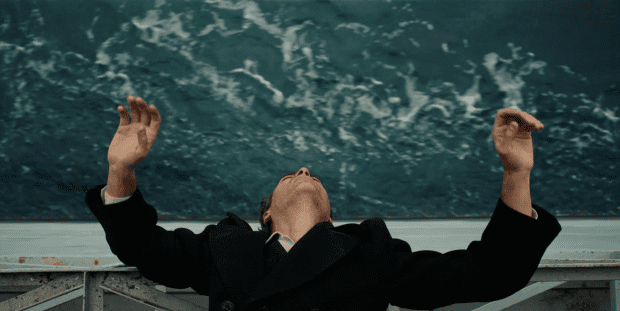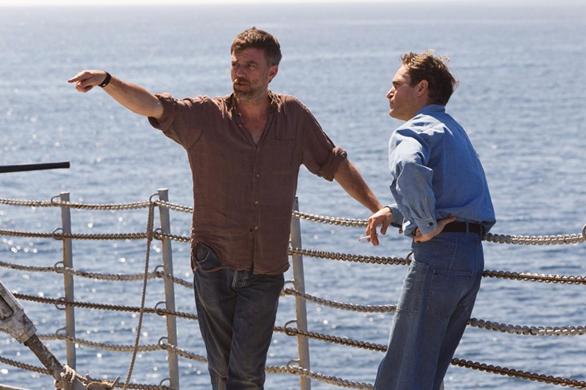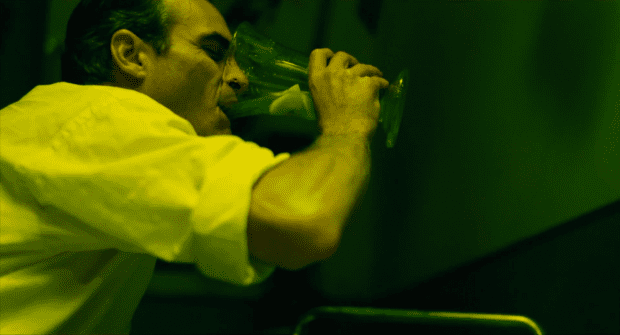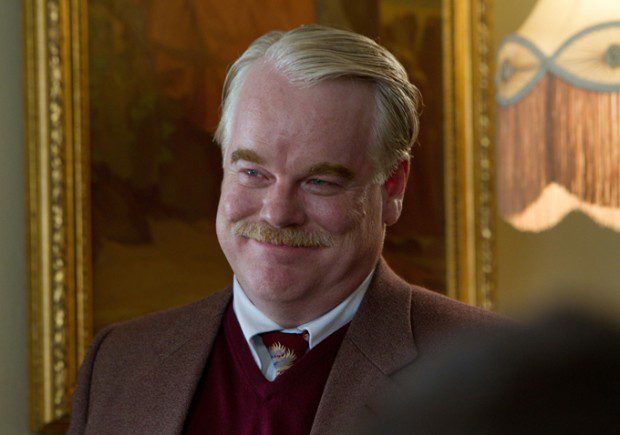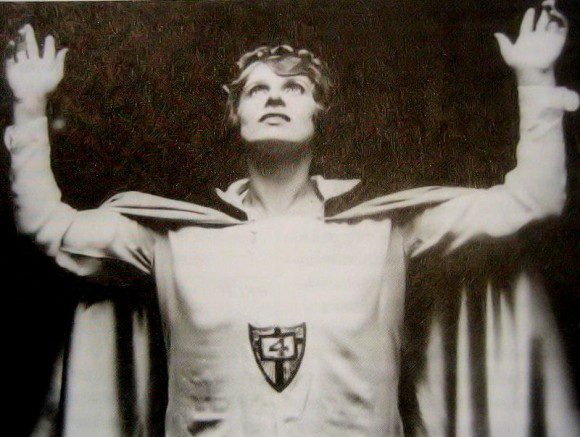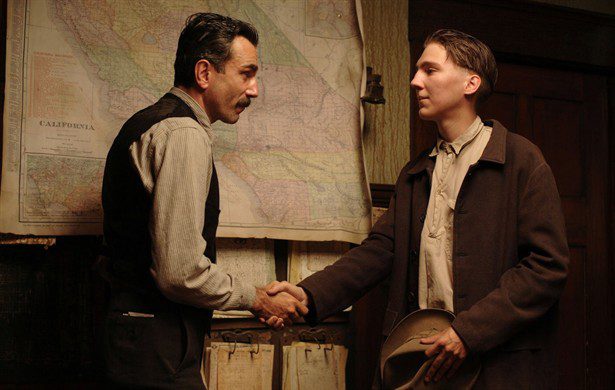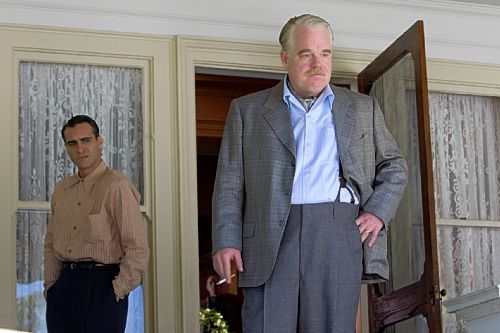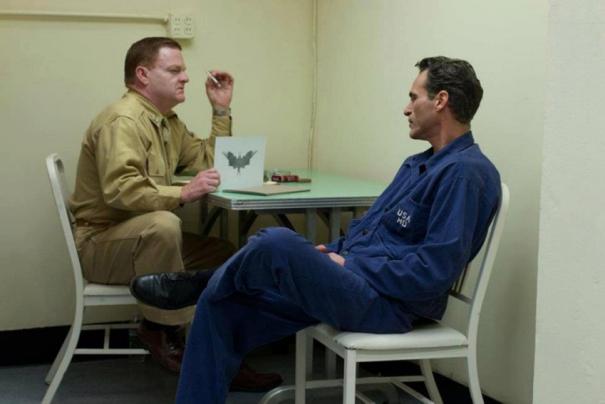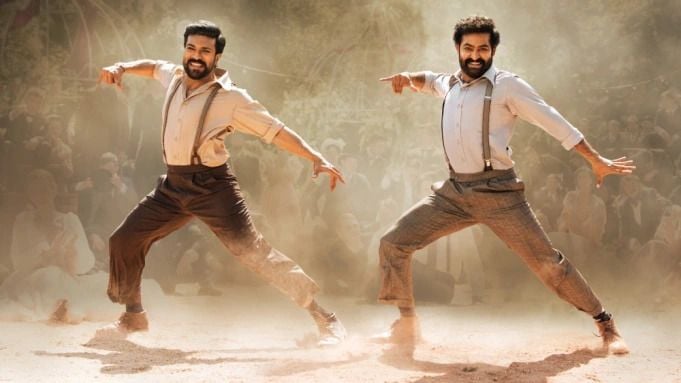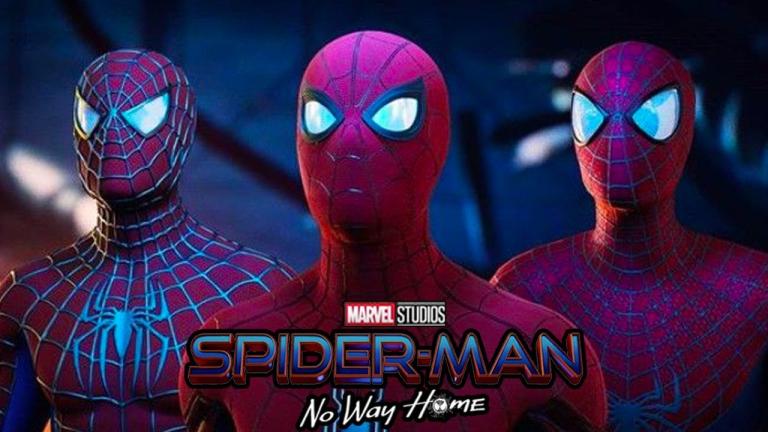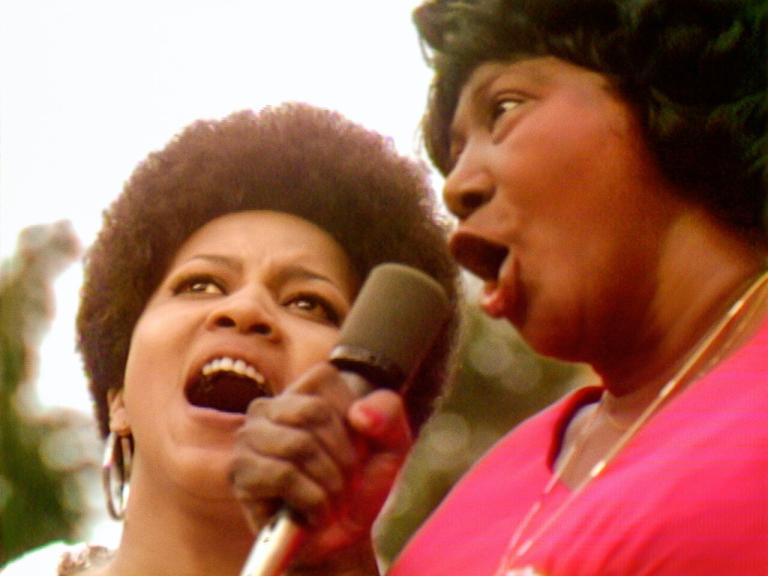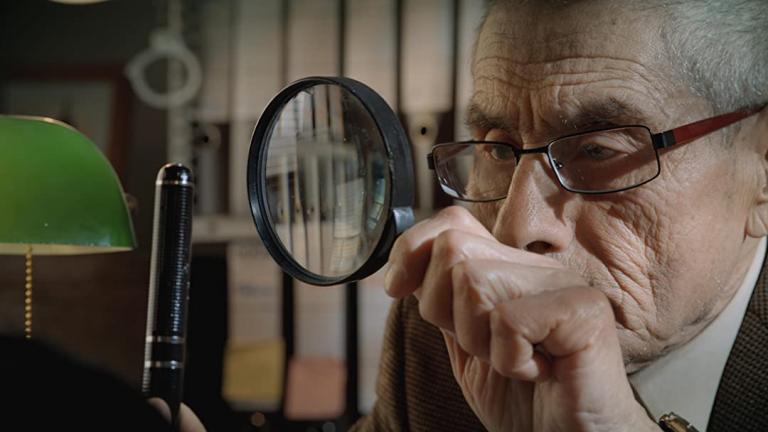For dedicated cinephiles, wrestling with a movie and its meaning is a profound pleasure. To casual moviegoers, The Master may feel too arduous, a long slog, not worth the effort. Hollywood makes so many effects-driven, popcorn movies that it is tough to adjust to a film rooted in characters and their struggles. Especially when it doesn’t offer an easy resolution. The Master requires considerable reflection to unearth what it is saying, doing, and communicating. Such complexity will garner plenty of Oscar nominations. I agree with my colleagues at Patheos that The Master is quite naked and profane. While some were bored or offended, I was enthralled.
Why is The Master worth the investment of time and (emotional) energy? I’ve been processing this question for almost a week. Few films burrow so deeply into the psyche with scenes still bouncing around my brain. So I will dedicate a couple of columns to reflecting upon the film. I’ll begin by placing The Master in context, as the latest installment in Paul Thomas Anderson’s exploration of the American male. His recurring question: “Why do men continually look for love in all the wrong places and things?”
Paul Thomas Anderson loves guys, especially flawed and obsessive guys. They may be gamblers (Hard Eight), porn stars (Boogie Nights), cops (Magnolia), salesmen (Punch Drunk Love) or oil speculators (There Will Be Blood), but they are all haunted by personal demons and searching for relief. These vivid characters go to extremes, getting themselves in desperate straits where only divine intervention can break their cycle of self-destruction. Anderson’s potent films and characters are not for everyone. Their blind spots are so pronounced that their intransigence can be frustrating. Yet, plenty of men recognize their aspirations and their worst tendencies within PTA’s loners.
The Master focuses upon the plight of Freddie Quell, a World War II veteran whose boundless need for alcohol extends to missile fuel. Joaquin Phoenix returns to feature films looking more gaunt and emaciated than ever. His speech is slurred, his shoulders slouched, and his kidneys barely there. Sex drives his unchecked id. Who can cure Freddie of what ails him? Author Lancaster Dodd has started The Cause, teaching his followers that the mind is more powerful than the body. Philip Seymour Hoffman portrays Dodd with swagger and magnetism. Yet, whenever he’s confronted by his critics, Dodd’s hair trigger temper surfaces in startling similar ways to Freddie. Will the Master lift Freddie out of his downward spiral? Or will Freddie’s violent tendencies unravel the Cause? Anderson extends so much grace towards his broken characters that he tests the audiences’ patience.
Paul Thomas Anderson also loves Los Angeles. As a native Angeleno, PTA finds inspiration in underexplored pockets of the City of Angels. His early films focused on the overlooked side of Los Angeles—the San Fernando Valley. His most recent films look at the extremists who forged L.A. There Will Be Blood could be read as a study of Mulholland or Doheny or even Getty—the oil men whose names still mark the landscape. The Master is rooted in the colorful history of L. Ron Hubbard, author of Dianetics. After a peripatetic life, Hubbard’s teaching took root in Los Angeles as Scientology. While The Master covers far more geography than Anderson’s previous films, it still arises from his own Los Angeles upbringing, rooted in our particularly porous, spiritual soil.
Los Angeles is often lampooned as a city of fruits and nuts. The transient nature of the population makes it particularly fertile soil for New Religious Movements like Scientology. Few realize that the City of the Angels, founded by Roman Catholic missionaries, is also the home to two of the most influential Protestant movements of the past one hundred years: fundamentalism and modern Pentecostalism. In 1906, spiritual gifts like healing and speaking in tongues broke out on Azusa Street in downtown L.A. The Pentecostal movement quickly spread to every corner of the globe, spawning dynamic denominations like the Church of God in Christ, the Assemblies of God and the Four Square Gospel.
In Echo Park, flamboyant evangelist Sister Aimee Temple McPherson founded the Angelus Temple, which grew into the Foursquare Gospel movement. A Los Angeles oilman, Lyman Stewart, funded the pamphlets that defined “the fundamentals” of the Christian faith in 1910. Stewart’s charity extended to underwriting the Bible Institute of Los Angeles, now known as Biola University. We tend to think of Los Angeles exporting entertainment. But it has also served as the starting point for religious revolutions. As a filmmaker dedicated to the quirks of Los Angeles, Paul Thomas Anderson has wisely chosen to focus on faith. Or perhaps more accurately, he considers, “Why Los Angeles attracts so many rootless people who seek to fill their souls in such self-defeating ways?” I wish Anderson had concentrated more upon Dodd and the Cause, than Freddie and his addictions. Yet, the litigious nature of Scientology may have precluded a more direct reflection upon L. Ron Hubbard and his followers.
Anderson has always waded into the earthly in search of the transcendent. There Will Be Blood looked at Southern California before the oil boom. Opportunity and black smoke fill the sky. It pitted a pastor against a speculator. But the battle for power and money never felt even. In one weak moment, Daniel Plainview kneels to be baptized. But he comes roaring back against his foe. As the wildcat oilman, Daniel Day-Lewis overwhelmed Paul Dano’s young preacher right through the bloody finale promised in the title. Greed prevailed.
The Master corrects the power imbalance. The physical gap between the dueling leads is considerable. Lancaster Dodd teaches his followers to heal their painful memories, appealing to their spiritual rather than animal instincts. Dodd takes on Freddie as a project. Dodd seemingly holds the keys to tame this savage beast. Yet, whenever his authority is challenged, Dodd struggles to keep his own rage in check. Despite their physical differences, Freddie and Dodd are remarkably well matched. The flesh and the spirit prove inseparable.
With The Master, Anderson has once again delved into the past as a way of commenting upon the present. In There Will Be Blood, the struggle between religion and oil echoed America’s war in Iraq. The Master evokes the battle we have yet to recognize: how to reintegrate our veterans from Iraq and Afghanistan. Will the best army psychologists transport them beyond the pain of combat? Will they be delivered from desert nightmares? The Master shows how long the road to reentry can be. We will all pay the price for their post-traumatic stress.
NEXT: PROCESSING THE MASTER

